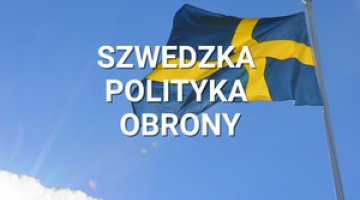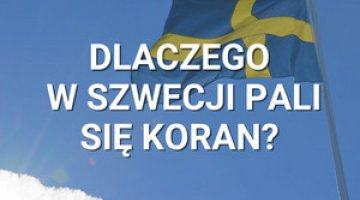NATO enlargement: Sweden and Finland facing Turkish objections
Since 20 June talks between representatives of Sweden, Finland and Turkey have been held at NATO’s headquarters to discuss the Turkish objections to the two countries joining the alliance. The talks were announced at the beginning of June by NATO Secretary General Jens Stoltenberg, but were postponed due to Ankara’s reluctant stance. In order to achieve a breakthrough before the NATO summit in Madrid (29–30 June), Stoltenberg took on the role of mediator, publicly emphasising the legitimacy of Turkey’s reservations. In mid-June, he visited Sweden and Finland and spoke to President Erdoğan by phone. The talks have so far failed to resolve the contentious issues, but will be continued.
In mid-May, days before Sweden and Finland submitted their applications to join NATO, Turkey made far-reaching demands on both countries and blocked the commencement of accession negotiations. The demands include: the extradition of a total of 33 people, the curtailment of all relations between the Swedish and Finnish governments with organisations linked to the Kurdistan Workers’ Party (PKK) and the Fethullah Gülen movement, preventing pro-Kurdish or ‘anti-Turkish’ organisations from operating in Sweden and Finland, curtailing the broadcasting on the Swedish and Finnish state media of pro-Kurdish or anti-Turkish interviews and programs, and lifting the embargo on the export of arms and military equipment to Turkey.
Commentary
- Turkey’s objections primarily concern Sweden. This country has the largest Kurdish diaspora in Scandinavia (probably ca. 100,000 Kurds, mainly from Turkey) with a large number of activists, artists and several members of the Riksdag of Kurdish origin. Turkey is demanding the extradition of some Kurdish activists, as well as people linked to the Gülen movement, whom it blames for the failed coup in 2016. For domestic reasons, it will be difficult for Sweden to yield on this issue. However, the Swedish government has begun to change its rhetoric, indicating that it takes Turkish security interests seriously into account, has amended its anti-terrorism law, and has announced that it will not block arms sales to Turkey after joining NATO; Stockholm has not imposed a formal embargo, but has not issued export permits since 2019). Ankara’s allegations against Stockholm also relate to the support given by the ruling Social Democrats to the Syrian Kurds – the political organisation PYD and its YPG/YPJ militias. These organisations, although supported by the US in the fight against Islamic State, are linked to the PKK and treated by Turkey as terrorist groups (Ankara has been conducting military operations against them in northern Syria since 2016). In November 2021 the Social Democrats, who needed one vote to form the minority government led by Magdalena Andersson, signed an agreement with an MP of Kurdish origin in which they promised to support the Syrian Kurdish groups mentioned. As a result, the Swedish foreign minister, among others, met with representatives of both organisations, although the government denies that the Swedish state finances or arms these groups. Despite Ankara’s objections, the agreement was confirmed in the first week of June in connection with the justice minister facing a vote of no confidence in the Swedish parliament. Prime Minister Andersson linked this vote with the possible resignation of the whole cabinet. The government survived the vote, but it derailed the chances for a quick agreement with Turkey.
- The Turkish reservations and demands affect Finland to a lesser extent. This is due to the fact that the Kurdish diaspora there is much smaller (at the end of 2021 it was 15,850 people), comes mainly from Iraq, andp is not as politically active as in Sweden. Ankara is said to be demanding the extradition of a total of 12 people, half of whom are said to have links to the PKK and the rest to the Gülen movement. Between 2019 and early June 2022, it received ten extradition requests from Turkey, but the list of names has not been disclosed. Seven have already been processed and two people have been handed over to the Turkish authorities. Finland has passed a number of anti-terrorism laws in recent years, and the current legislation in this area does not differ from that of other EU countries. The issue of blocking Finnish arms exports to Turkey can also be solved. Finland has not imposed an official embargo, but it has not issued export permits in recent years. It would, however, be difficult for the Finnish government to accept the proposal to influence public broadcasters. For Finland, where NATO membership has begun to be seen as fundamental to ensuring the country’s security, meeting Turkish demands is not as challenging as it is for Sweden. Finnish President Sauli Niinistö has, however, dismissed rumours of a unilateral agreement with Turkey to move forward with NATO accession talks independently of Sweden. Finnish government representatives are preparing the public for the possibility of a freeze in the accession process, claiming that they have been deceived by President Erdoğan, who as recently as March assured them that he had no objections to Finland’s possible accession to the alliance.
- Despite the involvement of the NATO Secretary General, it will be difficult to reach a compromise in time for the Madrid NATO summit. The US apparently does not want to be involved in resolving the dispute and prefers negotiations between Stockholm, Helsinki and Ankara to take place within NATO. Sweden’s social democratic government, due to the parliamentary election scheduled for September, will not be willing to make concessions such as the termination of the agreement with the Kurdish MP. The Swedish-Turkish disputes over Kurdish issues could possibly be resolved after this election. It is also an open question whether the objections raised by Turkey against Stockholm and Helsinki are the main issue guiding Ankara in hindering their bid to join NATO. Turkey may also see the planned NATO enlargement as an opportunity to strengthen its position and resolve problems in relations with its allies (with regard to the question of supporting or tolerating Kurdish organisations and the Gülen movement in other NATO states, or lifting the embargo on arms supplies), to settle disputes with Greece (on the demilitarisation of islands in the Aegean Sea), or to obtain Western consent for another offensive in northern Syria aiming to create a buffer zone along the Turkish-Syrian border. The tensions in relations with Sweden and Finland are also an element of domestic politics ahead of the presidential and parliamentary elections in Turkey in 2023. The process of both countries’ accession to NATO may therefore be delayed by up to a year.




